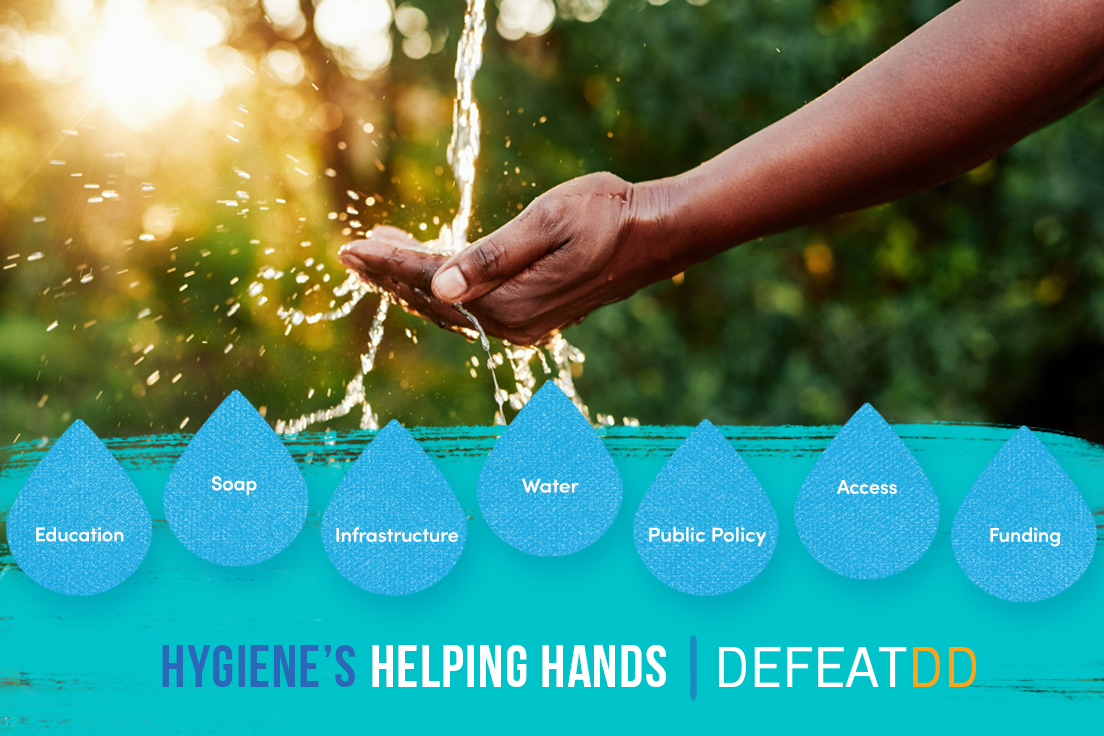
WASH and COVID-19: What should donors be thinking about?

Poor access to water, sanitation, and hygiene is the root cause of many persistent global health challenges. Even as we respond to the global COVID-19 emergency, we can use this opportunity to thoughtfully lay a foundation for long-term success against infectious threats like diarrhea, which will continue to burden poor communities long after the pandemic recedes. Here we share thoughts from Agenda for Change. You can find the full version of the post on their website.
While the COVID-19 pandemic has been an unprecedented tragedy, there is a small flicker of hope.
Those of us who work to help people get access to water, sanitation, and hygiene (WASH) have been pleased that the pandemic has heightened many people’s attention to the importance of WASH services to prevent the spread. What many people do not think about is that strong WASH systems are needed for us to be able to practice regular good hygiene now and forever (sorry, but we know there will be more epidemics). We cannot just deliver handwashing stations and soap to communities and health centers and hold our breath until a vaccine arrives. Resilience to future epidemics and other crises depends not just on actions taken now, but also on policies, institutions, and capacity that endure after the immediate response.
If not now, when should we be investing in WASH systems? It is critical to invest in sustainable solutions to ensure that systems are in place, and that they will continue to function once funding is gone.
- This pandemic has further highlighted that something we take for granted – the availability of water and soap for handwashing and cleaning at health clinics – often doesn’t exist. Strong WASH systems are essential to strong public health systems. As outlined by Patrick Moriarty, Steering Committee Chair for Sanitation and Water for All, a health response is a WASH response.
- Many rural communities are completely shut off from assistance due to government lockdowns during this pandemic, and they are often the ones who also face issues with intermittent water supply and broken infrastructure. Further, in some cases COVID-19 response has resulted in further inequity in water services: in urban areas many people with utility connections are getting unlimited water for free, but in rural areas there are no utilities to provide water. A systems approach can support rural actors to help themselves in a crisis without external support from foreign NGOs.
- Almost all Agenda for Change members reported delays, shifts, or cancellations of funds intended to strengthen WASH systems in favor of short-term response efforts like installing handwashing stations, providing soap, or supporting behavior change campaigns around COVID-19. If that work is done without supporting the people and processes to keep water flowing and enforce hygiene behaviors, these efforts are not going to lead to lasting protection from future shocks: climate stress, pandemics, epidemics, conflict, etc. Donors should build in more flexibility to ensure that funding for WASH systems strengthening will continue in the face of crisis.
Read more on the original blog: “Strengthening WASH systems in the time of COVID-19”


